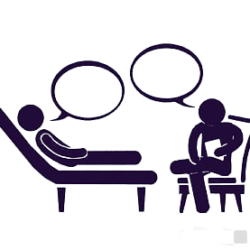Services Provided



Primary Care
Every Wednesday and Saturday
10 am – 2 pm
**Appointment Only** Please call us to schedule an appointment.
Preventive Care: Preventive care is provided by our clinic.
Chronic Disease Management: Management of diabetes, high blood pressure, high cholesterol, arthritis, asthma, and many other common chronic conditions.
Specialty Care
*Specialty clinics are available based on the availability of the physicians on Saturdays or Tuesdays only*
- Physical Therapy
- Orthopedic
- Cardiology
- Chiropractor
- Neurology
- Nephrology
- Pumonology
- Gastroenterology (GI)
- Endocrinology
Psychiatry Clinic and Counseling
Psychiatry Clinic: Every Tuesday from 6 pm – 7:30 pm
Counseling: Every Monday from 5:30 pm - 7:30 pm (Telehealth)
**Appointment Only**
What are the Different Specialists?
Physical therapy involves rehabilitative treatment aimed at restoring or improving movement, strength, and functionality after injury, surgery, or illness. Physical therapists use exercises, manual therapy, and other techniques to help patients regain mobility and manage pain.
Orthopedics focuses on the musculoskeletal system, which includes bones, joints, ligaments, tendons, and muscles. Orthopedic specialist diagnose and treat conditions such as fractures, arthritis, sport injuries, and other musculoskeletal disorders.
Cardiology specializes in diagnosing and treating disorders of the heart and blood vessels (cardiovascular system). They manage conditions such as heart disease and heart attacks.
Chiropractors uses hands-on spinal manipulation and other alternative treatments to align the body’s musculoskeletal structure, particularly focusing on the spine. Chiropractors believe proper alignment of the body’s musculoskeletal structure can enable the body to heal itself without surgery or medication.
Neurology deals with disorders of the nervous system, including the brain, spinal cord, nerves, and muscles. Neurologists diagnose and treat conditions such as epilepsy, stroke, multiple sclerosis, Parkinson’s diseaase, and headaches. They may also perform procedures such as EEGs and EMGs.
Nephrology focuses on the diagnosis and treatment of kidney disorders and diseases. Nephrologists manage conditions such as chronic kidney disease, kidney stones, hypertension related to kidney problems, and electrolyte disorders.
Pulmonology focuses on diseases of the respiratory system including the lungs and airways. Pulmonologists diagnose and treat conditions such as asthma, CPOD (chronic obstructive pulmonary disease), pneumonia, and lung cancer.
Gastronenterology specializes in disorders of the digestive system including the esohpagus, stomach, intestines, liver, pancreas, and gallbladder. Gastroenterologists diagnose and treat conditions such as acid reflux, ulcers, Crohn’s disease, irritable bowel syndrome (IBS), and liver disease. They may perform procedures suchas endoscopies and colonoscopies.
Endocrinology focuses on disorders of the endocrine system, which involves hormones and glands that produce them. Endocrinologists manage conditions such as diabetes, thyroid disorders, adrenal gland disorders, and hormonal imbalances.

